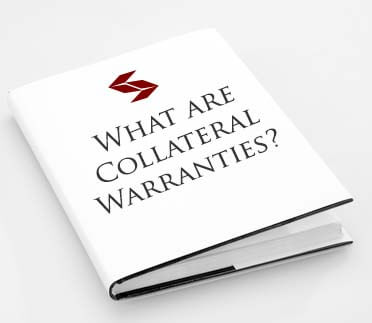
12 May 2017
All you need to know about collateral warranties
When dealing with construction projects and contracts we often hear about Collateral Warranties. But what are these and what do they mean for your insurance programme?
Collateral Warranties are used due to extend the responsabilities beyond contractual obligations towards third parties involved within a certain project. However, how can your business be certain that your collateral warranty will fully cover the needs and responsibilities of your project?
As an owner or manager of a construction firm, you know that construction projects, no matter the size, can be filled with a whole range of difficulties and setbacks. However, your responsibilities can extend beyond the contractual obligations and apply to third parties, using what is called a ‘collateral warranty’.
Collateral warranties are used as a supporting document to a primary contract where an agreement needs to be put in place with a third party outside of the primary contract. Sometimes an architect, contractor, or sub-contractor will need to warrant to a funder, tenant or purchaser that it has fulfilled its duties under a building contract.
Collateral warranties often contain obligations that affect the consultant or contractor, such as using materials of an appropriate quality, and carrying out work in a professional, workmanlike manner. It can also provide the third-party contractual rights enabling it to claim for losses which would not otherwise be recoverable.
What is a collateral warranty?
Not only are you responsible for doing the job effectively and safely, you are responsible for fulfilling your contractual obligations to whoever hired you. Beyond that, a collateral warranty creates a contractual link between the construction team, (such as contractors, consultants and subcontractors), and third parties with a stake in the project, (such as funders, tenants or purchasers). This way, the third party has a direct contractual relationship through the collateral warranty to pursue legal action against the construction team in the case of negligence. Whilst neither your firm nor your employer is obligated to enter into a collateral warranty, employers opt for them for three main reasons:- The contract between the employer and the primary contractor does not allow third parties to be written in after it has been finalised.
- It provides third parties with the ability to file a claim against members of the construction team for the quality of work that they contributed.
- It may provide third parties with step-in rights, which allows them to ‘step in’ to the shoes of the project’s employer. Step-in rights can be used to ensure that a project is completed if, for example, the project’s employer becomes insolvent. When this occurs a third party such as the funder or purchaser can ‘step in’ and take the place of the employer to see the project to completion.
What are the Key Clauses?
Collateral warranties typically contain the following provisions:- Principal covenant ensures that warrantors (the contractor, subcontractor or other members of the construction team) will perform their duties with reasonable skill and care and fulfil their obligations in the main contract.
- Insurance policy explains the required level of professional indemnity insurance that warrantors must hold, which usually matches the insurance requirement in the main contract.
- Deleterious material clause states that warrantors will not use any deleterious materials, or materials that are harmful to people or the building itself, during the project.
- Copyright licence allows third parties to copy and use design documents created by the warrantors.
- Assignment clause specifies how many times the collateral warranty’s benefits may be assigned. (for example, to the property’s next purchaser).
- Liability limitation encompasses a range of clauses that help limit the warrantors’ liability. Such clauses include a ‘no greater liability’ clause, stipulating that warrantors take on no greater liability to the warranty’s recipient than they did under the original contract.
- Time period states how long the collateral warranty is in effect, usually 12 years.
- What you should do upon receiving a collateral warranty. After you receive a collateral warranty, you should verify that it does not infringe upon the terms of your Professional Indemnity insurance. Some insurers offer a free collateral warranty check service to ensure that it is appropriate to remain fully covered according to your liability under the collateral warranty.
- What you should look out for when agreeing to a collateral warranty. Ensure you know the following four pieces of crucial information.
- An outline of the amount of responsibility expected of you
- Whether you have the opportunity to effectively limit your liability
- The date for when the liability will expire
- The number of third parties that are able to bring a claim.
- Guidance on how to enter into a collateral warranty. Whilst you are not legally obligated to enter into a collateral warranty, you may be put under commercial pressure to do so. If the terms of your contract state that you are to enter into a warranty, you should be aware of how it will affect your insurance and liability.
Build With Confidence
Construction projects can be complex undertakings with multiple moving parts that must be regularly addressed and monitored. Neglecting to inspect all contracts and attendant collateral warranties for extra liability could be disastrous to your firm, exposing you to undue liability and opening you to possible claims from third parties.Recent Posts
Ascend Broking
Scaffolding Insurance for a High-Risk Industry
Ascend Broking
How AI is Revolutionising Fleet Safety
Ascend Broking





